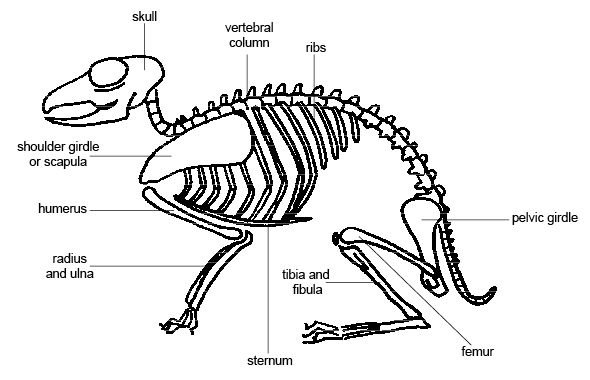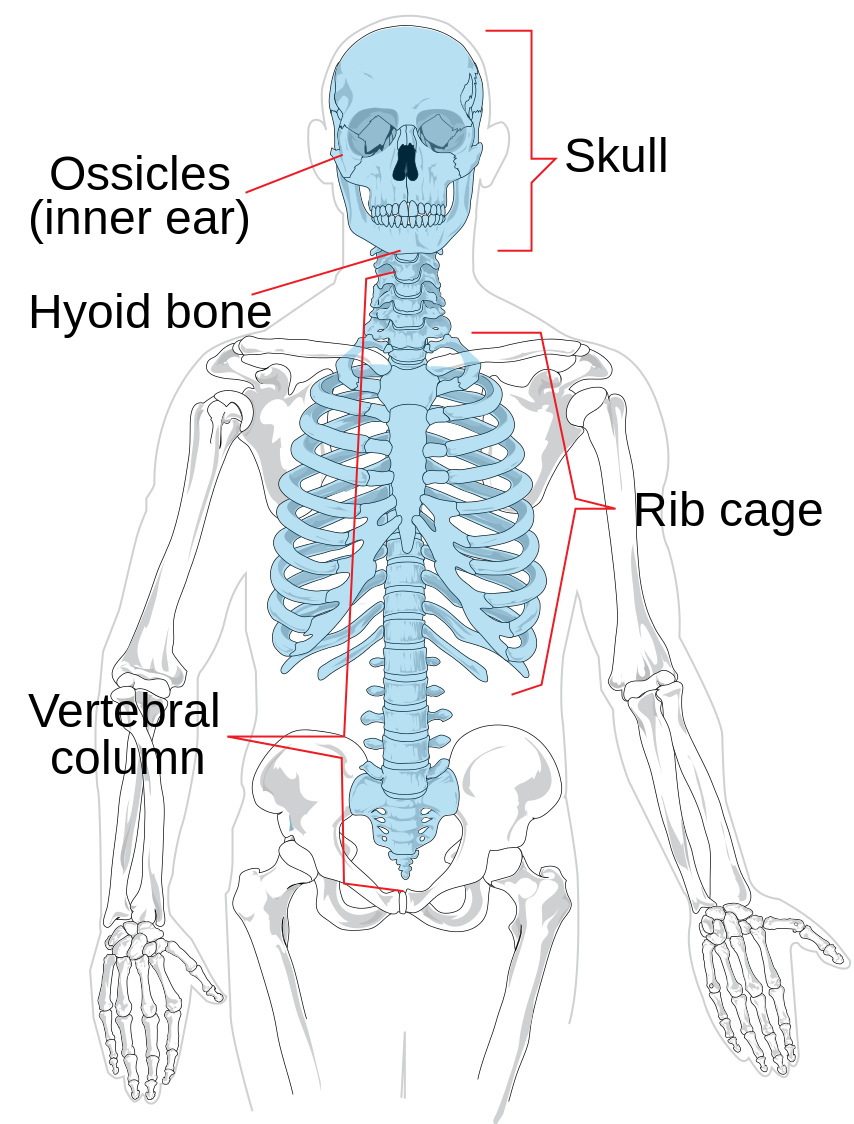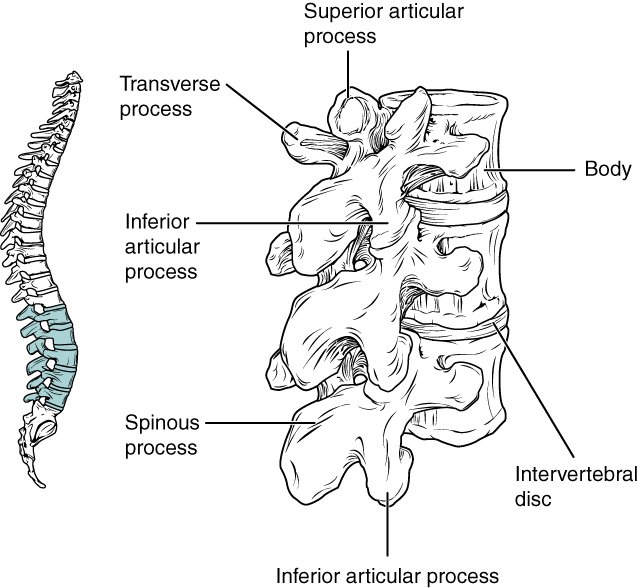THE SKELETON
Good day steemains
I welcome you to my blog this evening,I hope you had a wonderful day today,I will be talking about skeleton
How to identify the bone of a small mammal
The skeleton of a mammal:The internal skeleton (endo-skeleton) of the rabbit consists of two major parts; the axial and the appendicular skeletons.

1.Atlas. 7.Pelvic girdle
2.Axis. 8.Femur
3.Scapula. 9.Tibia
4.Humerus. 10.Fibula
5.Radius. 11.Floating ribs
6.Ulna. 12.Sternum
The skeleton of the rabbit:The diagram is aimed at helping students to identify the position of the various bones of the skeleton e.g If a student is having difficulty in identifying the anterior or posterior parts or the dorsal or ventral sides,he can look to this diagram for the help.
The Human skeleton
Each part of the skeleton is suited to its function.The human head made up of several flat bones which form the skull.The hollow cranium contains the brain and there are sockets and cavities which contain and protect the delicate sense organs like the eye and brain and there are sockets and cavities which contain and protect the delicate sense organs like the eyes and the ears.The lower jaw is single curved bone which is hinged against the cranium so that the jaw can move .Upper and lower jaws contain the teeth.The tip of the nose is made of flexible cartilage which rots after death so skulls do not have a nose.
The skull pivots on the of the backbone or spine.This made up of 33 bones joined to form a strong fairly rod in the middle of the body .Each bone is vertebra so the whole spine can be called the Vertebra column
The first vertebra of the column is the Atlas.This has large flat plates that supports the skull. This axis is the second vertebra and this has a projection (odontoid process) which extends upward into a space in the atlas.The projection permits the pivoting and the rotation movements of the skull on the spine .Atlas and the axis are two of the seven vertebra in the neck .There are 12 thoracic vertebra which are attached to the ribs and five lumbar vertebra which support most of the body's weight.These vertebra have a large centrum .The sacrum consists of five small fused bones which connect the pelvic girdle to the backbone.The tail bone or coccyx of four small fused bones ends the Vertebral column.
As well as supporting the thorax and abdomen,the vertebra column protect the spinal cord which passes lengthwise through a hole (The neural Cana) in each vertebra.There are also opening between vertebra through which pass the spinal nerves.pads of cartilage called inter-vertebral discs are located between the Vertebrae and these not only absorb shocks but allow the Vertebrae to move smoothly against each other The rib cage has 12 pairs of ribs, 10 of which are united by elastic cartilage in front to the breastbone (sternum) and by joint to smooth surface on the Vertebrae at the back.The ribs cage protect the contents of the thorax the heart and lungs,but also helps in breathing.

The Axial skeleton
This is made up the skull and the backbone (vertebra/column).The skull of a rabbit is elongated and bilaterally symmetrical.It consists of 3part the cranium which is the brain box,the snout which is the face and lower jaw.
parts of the skull which are clearly visible are the premaxillae,nasal orbit and the foremen Magnum.

Source
Bones of the vertebral column
The cervical vertebrae
A typical cervical vertebrae has a central canal,the neural canal .it has a bony arch which surrounds the neutral canal,the neutral spine,a solid piece of bone known as the centrum,cervical ribs and vertebraterial canals .
The Atlas
The Atlas is the first or most anterior bone of the vertebral column.it has a very small and short neural spine and two expanded and flattened transverse processes.Each traverse process is pieced by hole called the Vertebraterial canal.The Atlas has a large neural canal which is divided into two by a transerve ligament (The ligament cannot be seen when the bone is not fresh).There is no centrum (body) in the Atlas.The anterior end of the Atlas has two facets which articulate with the knobs (condyles) of the skull.The Atlas allows only the nodding movement of the head
This post still continue
REFERENCE
•Atlas
•Skeletal System: Bones, Joints, Cartilage, Ligaments, Bursae

Baba u try @biology teacher...
Thanks